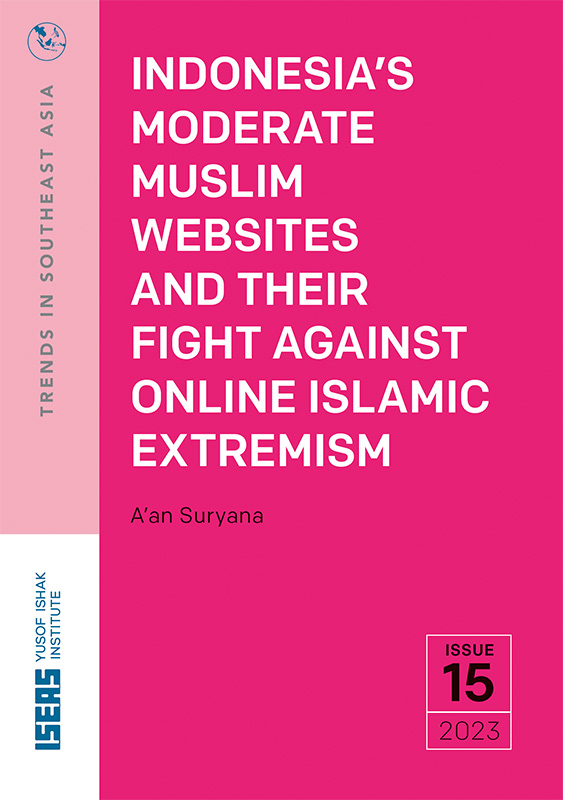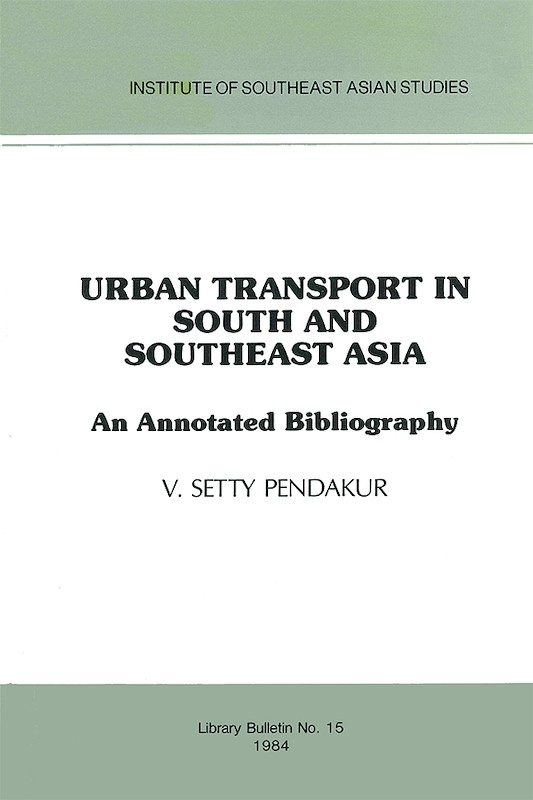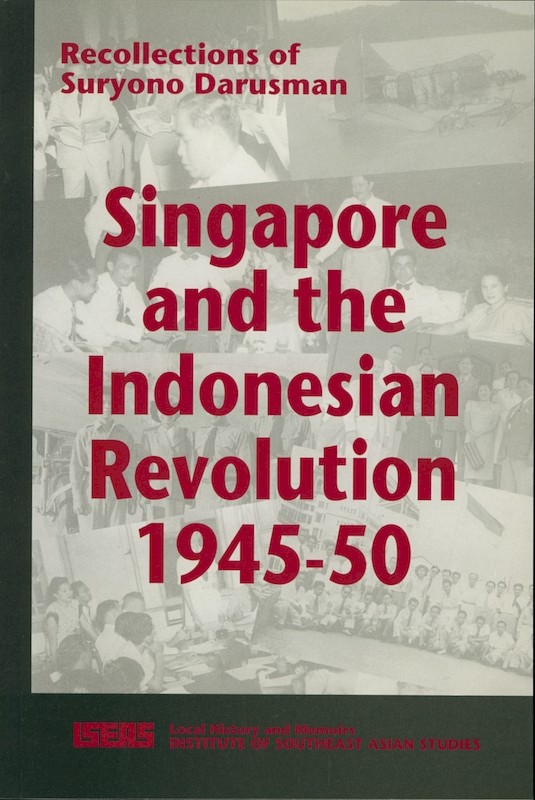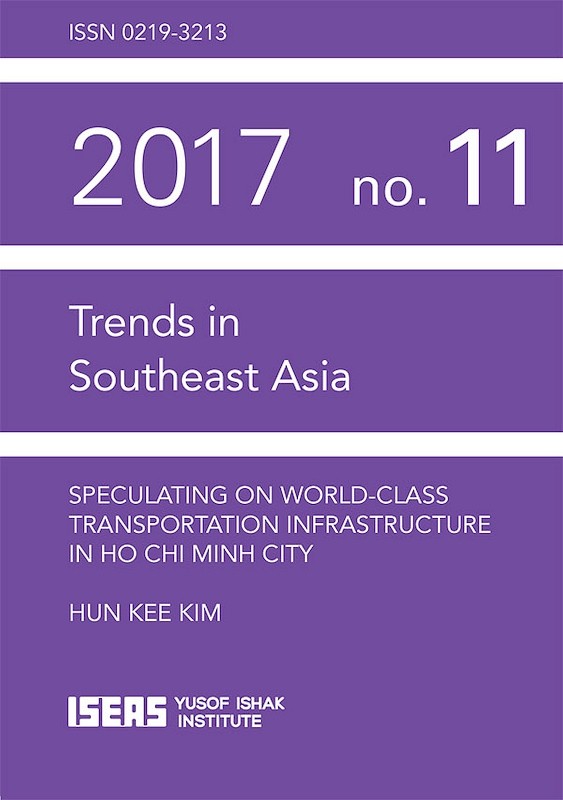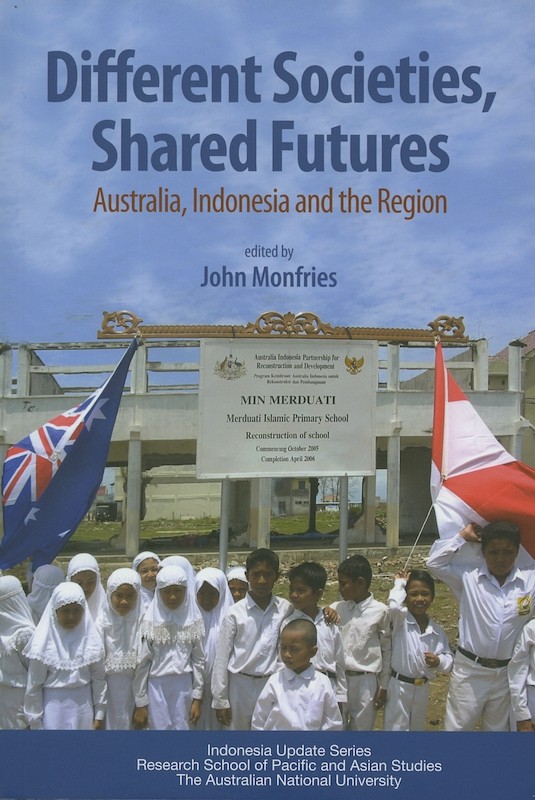Troubled Transit: Asylum Seekers Stuck in Indonesia

Antje Missbach, author
Date of publication:
2015
Publisher:
ISEAS – Yusof Ishak Institute
Number of pages:
289
Code:
BM521
Soft Cover
ISBN: 9789814620567
Reviews
Tina Shrestha, Bijdragen Tot De Taal-, Land-En Volkenkunde, 2019.
"In its approach to transit migration as an indeterminate process, rather than a stable procedure, the book highlights the broader significance of transit as a concept and methodological approach to studying the contemporary socioeconomic and political conditions of countries in the global South designated by international organizations as 'transit' states, such as Indonesia, for the management of migrants until they arrive in presumably more desirable destinations like Australia, and the subsequent segregation of migrants and refugees through arrests and detention. Missbach draws on extensive (2010- 2014) and multi-sited ethnographic fieldwork in West Java, Nusa Tenggara Timor, and the Riau Archipelago. Exploring the experiences of various transit migrants in Indonesia on their journey to Australia, the book offers a wide-ranging study of the economic, legal, and political dimensions of transit migration, interrupting the powerful, contemporary "migratory flows" narrative of "the Middle East via the Mediterranean states into the EU" (p.11).
Troubled Transit conceptualizes transit migration as an ongoing and forward-looking process, even as academics and policy makers continue to describe transit migrants as constantly "stuck" in a particular time and place. Missbach makes this point explicitly when she discusses "stuckedness" (Hage, 2009) at various points in the book.
The book is an essential read for researchers, humanitarians, and human rights advocates invested in persuading transnational governing bodies of the human cost of managing migration through detention and deportation regimes."
Imam Ardhianto, Asian Journal of Social Science 45 (2017) 205-227.
"... this erudite work should be a recommended to scholars for the elaborate methodology it uses to understand the current situation of transit migrants, and the author's sensitivity in positioning her understanding of transit situations into broader debates on migration, refugee and asylum seekers. By offering an interesting way in bridging micro analysis with a wider context of international regulations, states policy-political orientation and global situations, this will also appeal to a wider audience.
... Missbach's study locates transit migrant and transit migration as a process that reveals the social trajectories of migrants and complex relations of actors that make them, whether documented or undocumented, in a state of "whole points of no return." Hence, while numerous studies analyse migrant issues in the destination place, this book introduces us to a complex set of interrelated actors who by chance produce what I refer to as transit limbo.
.... This book begins with a very compelling narrative which persuading readers with detail subjective interpretations of migrants about their current situation of living in limbo. In this way it provides a broader significance through her methodological strategy of bridging the micro and macro context of the current situation of migrants and refugees."
Asher Hirsch, Border Criminologies, University of Oxford, Faculty of Law, 3 Jan 2017.
".... Missbach's research provides one of the first in-depth explorations into the lives of those trapped in Indonesia as a result of Australia and Indonesia's cooperation on migration control. Unlike most research on migrant experiences, Missbach focuses on the lives of transit migrants as they wait in limbo rather than once they're given protection. This gives her unique insight into the difficulties those stuck in Indonesia face and also allows her to explore the lives of those who don't find protection.
Missbach seamlessly blends discussions of her big-picture policy and politics with very personal and intimate stories of the many refugees who were now forced to seek out a living in Indonesia.
This extensively research book is a must-read for those interested in learning more about the impacts of deterrent-based migration control policies. It will appeal to students and academics from a wide range of backgrounds, including anthropology, sociology, criminology, international relations and law. Further, it is essential reading for policy makers, NGOs and other advocates working on Australia's refugee politics. Missbach shows that while the boats en route to Australia may have stopped, the policy has resulted in the torment of thousands of individuals stuck in limbo. The book is accessibly written, easy to follow, and well balanced. The mix of personal accounts interwoven with law, policy, and politics makes for an extremely interesting and engaging reading."
Ross Tapsell. Asian Ethnology 75, no. 2 (2016): 487 - 89.
"....Missbach is not a scholar on Australian or worldwide migration policy, but rather an "Indonesianist" anthropologist. Her book provides an important contribution to our understanding of the issues of asylum seekers in transit countries, who are unable to gain citizenship while "waiting" to travel to their intended "final" destination. .... Missbach's book adds significant detail and description of the lives of these asylum seekers; what motivates them to remain, return, or move from Indonesia, decisions which are occasionally well-thought out, while at other times seemingly spur of the moment life-and-death choices.
It is a scholarly work of significance and is thoroughly researched. .... This book would be a crucial resource for scholars, government officials, and global humanitarian organisations devoted to migration. In addition, anyone interested in the Australian-Indonesia relationship should be urged to read it. Given the polarisation and often uninformed commentary on asylum seekers travelling from Indonesia to Australia, Missbach's book provides a thorough, precise, and deeply researched scholarly analysis. But the most engaging aspects of the book remain the voices of those previously underrepresented in scholarly and media accounts of transit migrants. Their stories give a sense of the effect transit migration will have on their lives even beyond the years they were "stuck" in Indonesia."
Max Walden. Inside Indonesia, 16 Oct 2016.
"..... Antje Missbach's Troubled Transit: Asylum Seekers Stuck in Indonesia is the first comprehensive study of transit migration in Indonesia to date: who, why and how people are arriving there, the conditions of their stay and what the future might hold. Central to the book are the personal narratives of a number of asylum seekers, presented with impressive detachment and objectivity.
.... There exists only a small body of literature - mostly Australia-based academics - with researchers like Savitri Taylor, Brynne Rafferty Brown and Amy Nether looking at the socio-legal gaps in protection for refugees in Indonesia, while Sue Hoffman has focused on the experiences of Iraqi refugees there. Nevertheless, the lack of investigation into the complex, ever-changing situation of refugee asylum seekers in Indonesia is striking.
Antje Missbach's Troubled Transit is thus a vital contribution to this emerging field. Importantly, this book highlights the widespread and detrimental impact of Australia's unilateral border policies on the Asia Pacific region - particularly Indonesia.
More journalists and academics should recognise what Missbach has; that Australia's border protection regime extends far beyond its own borders, beyond even Nauru and Manus Island, and causes hidden suffering for thousands upon thousands of people stranded in increasingly prolonged transits."
Wayne Palmer, Asia Pacific Migration Journal 25 (3): 342-344
".... Troubled Transit makes a welcomed contribution to knowledge about the experiences of asylum seekers in Indonesia while they wait for the opportunity to settle in a third country. Antje Missbach ... works hard to give a balanced take of the situation through the use of often conflicting perspectives from both asylum seekers and policy-makers.
Another valuable contribution of Troubled Transit its its analysis of the nexus between people smuggling and transit migration. Missbach presents some powerful stories that reveal the reasons why transit migrants use the services of people smugglers. .... Missbach presents a series of case studies about transit migrants turned people smugglers to identify factors that influence the decision-making process. An important conclusion is that legal and political inadequacies of the Indonesian context combined with uncertainty of the international protection regime make people smuggling an attractive means with which to deal with being 'stuck' in a transit country.
Missbach offers a detailed case study of transit migration in one country to academic debates on irregular migration. ...without focussing on their irregular migration status as part of an attempt to reinvigorate the concept as a tool of analysis, Missbach skilfully applies transit migration to examine the asylum seekers' lived experience only. This book will be a useful resource for the rights advocacy groups. ...as Missbach argues, ... it is difficult to justify the injustice and suffering incurred as a result of the limitations of the international system. This book is an important guide to the consequences of this failure. Troubled Transit, then, should be mandatory reading for those interested in learning about the hardships transit migrants in Indonesia go through before they arrive in a third country."
".... This appears to be the first in-depth examination of how and why the asylum seekers get to Indonesia, what pushes and pulls them, how they are faring and what happens next. .... Troubled Transit is a professional report thankfully devoid of the usual polysyllabic jargon some academics seem to think necessary to distinguish their work from journalism. .... this book is more than a primer for appreciating the issues."
Duncan Graham, "Boats Stopped: Now What about those in Limbo?" Malang, East Java. Jakarta Post, Opinion, Dec, 22, 2015.
"For the past four years Dr Antje Missbach has been researching the issue of asylum seekers stuck in Indonesia. The results of her work Troubled Transit has just been published by Singapore's ISEAS Yusof Ishak Institute. This is the most substantial report to date, looking at the problem from Indonesia's perspective."
The Bahasa Indonesia translation of the book has been reviewed in Umbara: Indonesian Journal of Anthropology (vol. 1, no. 2).
About the publication
Troubled Transit considers the situation of asylum seekers stuck in limbo in Indonesia from a number of perspectives. It presents not only the narratives of many transit migrants but also the perceptions of Indonesian authorities and of representatives of international and non-government organizations responsible for the care of transiting asylum seekers. Fascinated by the extraordinary and seemingly limitless resilience shown by asylum seekers during their often lengthy and dangerous journeys, the author highlights one particular fragment of their journeys their time in Indonesia, which many expect to be the last stepping stone to a new life. While they long for their new life to unfold, most asylum seekers become embroiled in the complexities of living in transit. Indonesia, a vast archipelago of more than 17,000 islands, is more than a location where people spend time waiting; it is a nation state that interacts with transiting asylum seekers and formulates policies that have a profound impact on their experience in transit there. Troubled Transit tries to explain the complexities faced by the transiting migrants within the context of the Indonesian government and its political challenges, including its relationship with Australia. The Australia-centric view of recent asylum seeker issues has tended to ignore the larger socio-political context of the migratory routes and the perspectives of transit states towards asylum seekers stuck in transit. This book hopes to direct the Australia-centric gaze northwards to take Indonesian policies and policymaking into account, thereby giving Indonesia more relevance as a transit country and as an important partner in regional protection schemes and migration management. Even though some Indonesian policies and practices are less than favourable for asylum seekers, and even reprehensible from a human rights perspective, more attention must be paid to ongoing developments that impact on transiting asylum seekers in Indonesia if any of the hardships they suffer there are to be alleviated.
The e-chapter, "1. Introduction", is downloadable free of charge.
The e-chapter, "1. Introduction", is downloadable free of charge.
Contents
-
Troubled Transit: Asylum Seekers Stuck in Indonesia
[Whole Publication, ISBN: 9789814620871], by Antje Missbach, author -
Preliminary pages
-
1. Introduction
-
2. Transiting Indonesia: Past and Present
-
3. The Politics of Detention
-
4. Life on Hold
-
5. The Limits of Protection
-
6. Indonesia as a Transit State: Obligations, Policies, and Practice
-
7. Tidal Ebb and Flow: The Indonesia-Australia Relationship
-
8. Selling Hope
-
9. Conclusion
-
Bibliography
-
Index
-
About the Author

